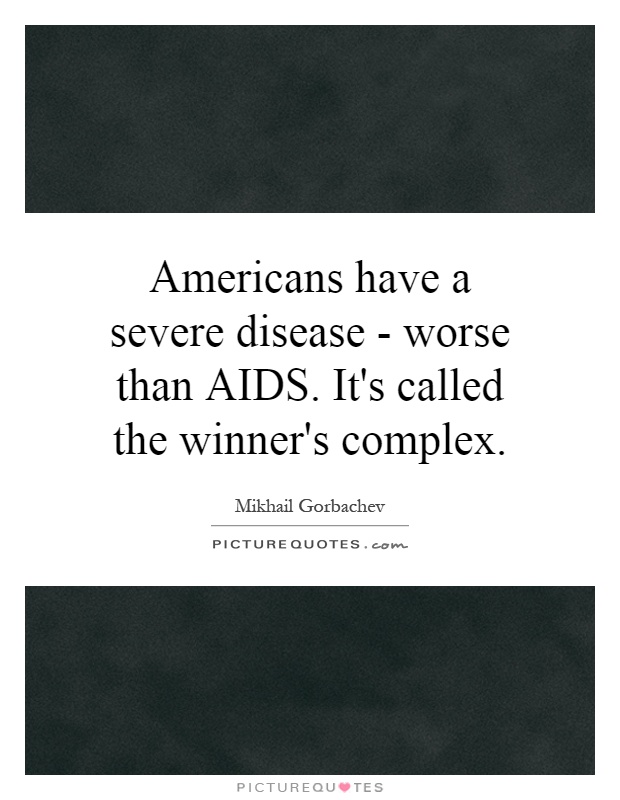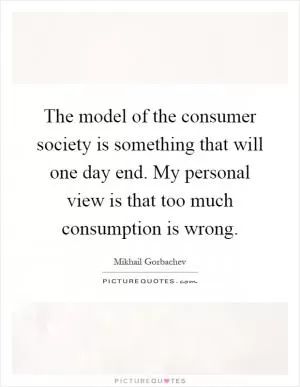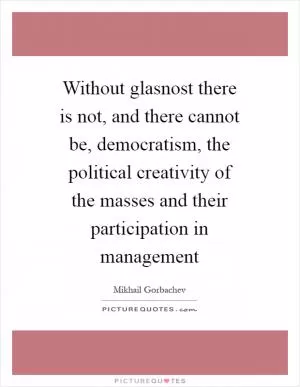Americans have a severe disease - worse than AIDS. It's called the winner's complex

Americans have a severe disease - worse than AIDS. It's called the winner's complex
The statement that "Americans have a severe disease - worse than AIDS. It's called the winner's complex" is a bold and controversial one. It suggests that Americans have a tendency to believe in their own superiority and exceptionalism, leading to a sense of entitlement and arrogance. This mindset, often referred to as the winner's complex, can have negative consequences both domestically and internationally.In the context of Mikhail Gorbachev, the former leader of the Soviet Union, the winner's complex can be seen in the way that Americans viewed the end of the Cold War. Many Americans saw the collapse of the Soviet Union as a victory for the United States, and believed that their system of government and way of life had triumphed over communism. This sense of triumphalism and superiority may have contributed to a lack of understanding and empathy for the challenges faced by the Russian people during this period of transition.
Gorbachev himself has criticized the winner's complex in American foreign policy, arguing that it has led to a lack of humility and a tendency to impose American values and interests on other countries. He has called for a more cooperative and inclusive approach to international relations, based on mutual respect and understanding.
The winner's complex can also be seen in the way that Americans view their own society. The belief in American exceptionalism can lead to a sense of complacency and a reluctance to acknowledge the flaws and inequalities that exist within the country. This can prevent meaningful progress on issues such as healthcare, education, and income inequality.












 Friendship Quotes
Friendship Quotes Love Quotes
Love Quotes Life Quotes
Life Quotes Funny Quotes
Funny Quotes Motivational Quotes
Motivational Quotes Inspirational Quotes
Inspirational Quotes